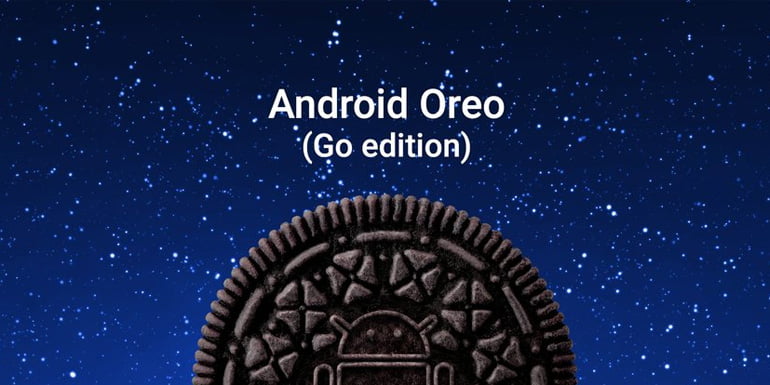A super optimized android operating system that can run smoothly even on devices with 512 MB of RAM. That’s the new Android Oreo Go edition introduced by Google as part of the release of Android 8.1 OS.
Android Oreo (Go edition) is essentially the software experience for Google’s project ‘Android Go’, which was revealed during the Google I/O 2017. The Android Go project aims to bring the next billion users to Android fold with entry-level devices that can be a fully functioning smartphone to browse the web and use apps.

The Android Oreo (Go edition) is comprised of three key components: the operating system, Google Apps and Google Play Store.
Super Optimized Operating System
Let’s start with the super optimized Android Oreo (Go edition) operating system. Google has essentially optimized the Android OS to a stage where the company says that ‘the average app‘ is now 15 percent faster on devices running the new OS. The usual preinstalled Google apps now take up 50 percent less space on your phone. Thus almost doubling the amount of available storage on entry-level devices.
Google’s data saver feature is turned ‘on‘ by default in Android Oreo (Go edition). This helps you to take full control of any apps data usage on your phone. Some of this features are already available to try via Datally app. The optimized OS has all the same security features of normal Android Oreo OS. It also comes with Google Play Protect built-in to protect your device and data from unsafe apps.
Optimized Google Apps
For Android Oreo (Go edition), Google has redesigned, fine-tuned and optimized most of its apps. Android Oreo (Go edition) devices will include only nine preinstalled apps. They are Google Go, Google Assistant Go, YouTube Go, Google Maps Go, Gmail Go, Gboard, Google Play, Chrome, and Files Go app. Most of this apps are already available on Google Play Store if you wish to take a spin on them.
Google Play Store in Android Oreo (Go edition)
Google Play Store will have a new section that recommends apps that are tuned to run well on entry-level devices. Popular apps like Flipkart, WhatsApp, Facebook, Skype and others are on the list. However, you also get complete access to regular apps on Google Play Store. So, if you crave to install a full-fledged app, you can do so without any restriction. But just remember that it won’t offer a silky smooth experience.
With the launch of Android Oreo (Go edition) in Android 8.1, mobile vendors can start building entry-level devices running this new OS. As per Google, every Android Oreo devices with 512MB to 1GB of memory launching in the coming months will have all the Go optimizations. Google has also released ‘building for billions guideline‘ for app developers to either optimize their existing app or create a new app to run well on entry-level devices.


